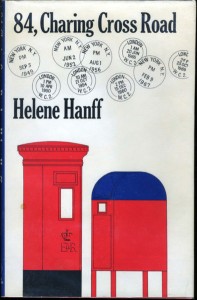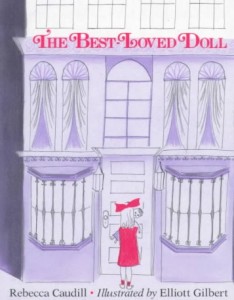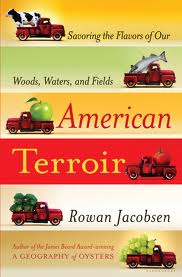Archive for June, 2011
Postscript
Well, it was inevitable that once I had opened 84, Charing Cross Road I would have to sit there and read clear through to the end, at the lamentable but unmourned expense of some work I ought to have done this afternoon but didn’t. And of course I had to make Scott read bits of it, and yes, we will be watching the movie very soon—thanks, those of you who suggested it in the comments.
I’m befuddled, though: the Shakespeare Garden passage isn’t in the book. I’m wondering what other book I’m mixing up with the Hanff. Katherine White, perhaps? I must have read Onward and Upward in the Garden three times that year, and certainly a Central Park garden would have been in Mrs. White’s wheelhouse.
I’ll look it up tomorrow.
UPDATED: Mystery solved: it’s Letter from New York. Thanks for the help!
Books that Make Me Want to Write Letters
 The old-fashioned kind, with paper and stamps and fountain pens, even scratchy-nibbed ones.
The old-fashioned kind, with paper and stamps and fountain pens, even scratchy-nibbed ones.
You can blame this list on Colleen Mondor at Chasing Ray, who recently compared John Hall’s Correspondence to 84, Charing Cross Road:
“…in that it’s an epistolary novel about books but it’s much more informative. A retired bank clerk finds a cache of letters from his great great grandfather from Dickens, Eliot, Thackeray, etc and enters into an email correspondence with Christie’s about selling them. Over the course of the months that follow he not only learns more about his ancestor but the literary greats themselves. As someone who never spent time with literature before it’s all a bit of a brave new world and he enjoys seeing what he missed. I liked all of that – a lot actually – it was only in the end that it sort of dropped off a bit. I thought there was a real friendship between the retiree and Christie’s seller he’d been emailing but it’s almost like Nash wasn’t sure how to end it. (Of course CHARING CROSS ROAD is the model for perfect endings -sad but brilliant.) Still a good read but a bit shy of wonderful.”
—Which immediately and overwhelmingly filled me with nostalgic affection for Charing Cross Road and for my first year in New York City. I don’t remember how I came across Helene Hanff’s wonderful collection of letters, but I first read it right after I moved to New York, and my early experiences there were highly colored by Hanff’s book. I remember taking it to Central Park and attempting to identify all the flowers she mentioned in the passage about the Shakespeare Garden.**
After Colleen’s post, I simply had to read 84, Charing Cross Road again, but I couldn’t find my old copy. The new (used) one arrived today, and it’s a wonder I am here writing at all—the first page swept me right back in. 1949, Saturday Review of Literature, underlined typewritten titles, a request-by-mail to an overseas seller of out-of-print books: it’s impossible not to read the opening letter without a wry awareness of the difference between the way Miss Hanff seeks to obtain her yearned-for old books, and the way I rapidly and effortlessly obtained my copy of hers. Click, click, click, and two days later a man in brown places a copy on my doorstep. Marvelously convenient, but no hope of the slowly unfolding relationship between thoughtful and humorous minds like the one that develops between Miss Hanff and the London bookseller. What we have instead, today, is this—an online community of booklovers, a set of relationships that develop over time in comment boxes. And you know I relish it, am glad to live in this particular now.
But oh! just savor—
Sir:
(It feels witless to keep writing “Gentlemen” when the same solitary soul is obviously taking care of everything for me.)
Savage Landor arrived safely and promptly fell open to a Roman dialogue where two cities had just been destroyed by war and everybody was being crucified and begging passing Roman soldiers to run them through and end the agony. It’ll be a relief to turn to Aesop and Rhodope where all you have to worry about is a famine. I do love secondhand books that open to the page some previous owner read oftenest. The day Hazlitt came he opened to “I hate to read new books,” and I hollered “Comrade!” to whoever owned it before me.
:::blissful sigh:::
Of course this got me thinking about other epistolary novels I have loved. The Guernsey Literary and Potato Peel Pie Society, obviously. Anne of Windy Poplars—not my favorite Anne book, and yet, for a certain stretch of years, one of my most frequently revisited novels. I loved Anne’s voice, given free reign in the letters, its warmth and humor. I know Montgomery went back and wrote Windy Poplars later, to fill in the gap between Anne of the Island (swoon) and Anne’s House of Dreams (the best Anne book next to Green Gables itself, not including Rilla of Ingleside in the comparison because that’s comparing apples and oranges, and they are both such delectable fruit)—but the sort of afterthoughtness of Windy Poplars in no way weakens it, and it’s inconceivable that P.E.I. could exist without a Rebecca Dew. (Who looks, by the way, in my mind’s eye, exactly like Guernsey Lit. Society‘s Isola. Or rather, Isola looks and sounds like Rebecca Dew—Canadian and British accents notwithstanding.)
What are your favorite epistolary novels?
Related:
Postscript
Letter from New York
Best-Loved Doll Books
 1. What else? Rebecca Caudill’s The Best-Loved Doll, of course! I adored this book as a child; I found the girl’s devotion to her scuffed-up, faded, frazzle-haired doll deeply touching and believable. Rose went through a long period of attachment to this book after I made her a (highly imperfect) cloth doll when she was seven or eight years old.
1. What else? Rebecca Caudill’s The Best-Loved Doll, of course! I adored this book as a child; I found the girl’s devotion to her scuffed-up, faded, frazzle-haired doll deeply touching and believable. Rose went through a long period of attachment to this book after I made her a (highly imperfect) cloth doll when she was seven or eight years old.
2. Miss Happiness and Miss Flower by Rumer Godden. Has probably been read a cumulative total of thirty times by my three oldest daughters. Creating a house for two homesick Japanese dolls helps a girl get over her own homesickness. Lovely.
 3. Among the Dolls by William Sleator. NOT a hit with everyone here: decidedly too creepy for some. But I remember the delicious chill up my spine when I (around age eleven) first encountered the sinister gleam in the eyes of that doll family out for revenge.
3. Among the Dolls by William Sleator. NOT a hit with everyone here: decidedly too creepy for some. But I remember the delicious chill up my spine when I (around age eleven) first encountered the sinister gleam in the eyes of that doll family out for revenge.
4. May I count a toy rabbit as a doll? Kate di Camillo’s melancholy The Miraculous Journey of Edward Tulane, which captivated us as we drove across Oklahoma and Missouri last summer, seems to me to deserve a place on this list.
 5. Raggedy Ann Stories by Johnny Gruelle. As I mentioned the other day, I don’t find Mr. Gruelle’s writing very easy to read aloud; it feels stilted and arch. But as a child I loved the world he portrayed, both inside Marcella’s nursery and out of it.
5. Raggedy Ann Stories by Johnny Gruelle. As I mentioned the other day, I don’t find Mr. Gruelle’s writing very easy to read aloud; it feels stilted and arch. But as a child I loved the world he portrayed, both inside Marcella’s nursery and out of it.
6. Hitty, Her First Hundred Years by Rachel Field. An early Newbery Medal winner about a doll who packs a great deal of adventure into her “first hundred years.” I’d like to hear about her second century…
Sorry, kids, I’ll be needing your college funds (and a whole lot more)
So I can get dot-awesome before someone else snaps it up under the new ICANN regulations:
Right now, there are a limited number — 22, to be precise — of what’s called “generic top-level domains.” The most familiar ones are “com,” “org,” “info,” “edu” and “net.”
Under the new rule, people will be able to apply to ICANN to register most any word, in any language, as their domain ending.
(snip)
ICANN will be charging at least $185,000 per domain application (more in the case of buyers who want one all to themselves). So it seems pretty clear that this will largely be for corporations, and maybe some governments.
Comments are off
Ancient Greece: An Incomplete & Rather Hasty Bonny Glen Roundup

I’m still answering questions in the Open Thread comments (and will continue bumping longer answers to new posts, like this one). Stephanie wrote:
I would love some suggestions for my 2nd grader – we are going to be covering Ancient Civilizations (Greeks, Romans, China) this coming school year and I’m wondering what read-alouds or chapter books you would suggest to her. She is an advanced reader so I’m looking for both books that would challenge her plus ones I could read to her with younger siblings. I’ve never tackled Greek myths before and need some age appropriate guidance! : )
I replied with a list of things we’ve read & enjoyed. I know there are lots and lots of other good books on these topics; this is just a sort of top-of-my-head collection of standouts from my family’s experience. And linking things nicely takes more time than I have this afternoon, so pardon the dashed-off character of this post.
UPDATED 6/21 to add a book I forgot—possibly Rose’s favorite besides the D’Aulaire. Adventures of the Greek Heroes by Mollie McLean & Anne Wiseman, a book she read so often I had to buy a second copy to replace the tattered, brokenbacked, page-shedding first copy.
D’Aulaire’s Book of Greek Myths is the main one, the book that has enchanted every single one of my girls from age four on. (Neither of my boys are ready for chapter books yet; see this comment for more on that.)
(D’Aulaire’s Norse Myths is another tremendously and enduringly popular book in these parts. Also the Trolls collection.)
Mary Pope Osborne has a lovely Greek myths collection as well. (And I’ll add, though off topic, a cheer for her Favorite Medieval Tales, a book I myself adore.)
A bit older, of course, and my kids go nuts for all things Percy Jackson.
Jim Weiss has several Greek myth cds—they + D’Aulaire are what sparked my Rose’s interest in Ancient Greece at age five, a passion that endures to this day. (Though lately she’s more into Egyptian mythology.)
Odds Bodkin has an Iliad storytelling CD—we checked it out once years ago after hearing many rave reviews, but I think I jumped the gun; the graphic snakes-eating-the-daughters-of-Laocoön part in the beginning terrified my tiny girls. I’m sure they would listen with relish these days, bloodthirsty lasses that they are. ![]()
Oh, another big hit has been Famous Men of Greece by John Haaren (you can read it for free at Mainlesson.com). That one focuses more on historical figures (some legendary) than gods & goddesses.
Also, the Ancient Greece chapters of A Child’s History of the World.
As I said, there are oodles of other good books on Greek myths & historical figures, but these are the ones I can vouch for as having engaged my own children across a wide age span.
Oh, and for a while, they were crazy about this website where you can follow the adventures of some cartoony Athenians and Spartans.
Here’s a post I wrote in 2006 about Rose’s passion (age seven at the time) for Ancient Greece: What the Tide Brought In.
And one from another round of enthusiasm in 2009: This Week in Ancient Greece.
(That post reminded me, duh, of Padraic Colum’s The Children’s Homer, which Rose devoured that year. And that was the year I read huge chunks of The Iliad and The Odyssey to the girls—my college texts, not children’s translations, and they were so into it! Ages eight, ten, thirteen, roughly, I think? I can’t be bothered to do the math. Anyway, I mention this not at all in a braggy sense but quite the opposite: there’s a reason those cracking good tales have endured for centuries. They GRAB you, even if you’re little.)
I know the original question asked for Ancient Rome & China suggestions too; will tackle those in separate posts.
**UPDATE! Be sure to see the comments for great suggestions from other readers!**
Impediments to Blogging
Shakespeare Club performance of scenes from Twelfth Night. (A smashing success.)
Father’s Day. (Mellow and nice.)
Sick kids. (Bummer.)
Travel plans to make. (Frazzling.)
A surfeit of interesting and enticing links to share. (Time consuming.)
And the library’s digital copy of All Clear, for which I waited in a months-long queue, is going to vanish from my phone in three days, and I haven’t read Blackout yet, even though I have both paper and digital copies, because I didn’t want to be left in suspense and that All Clear queue was so durn long… (First-world problem.)
I swear I am not staging these.
(If I were, they’d be in focus.)
Books the teenager has enjoyed recently
 I think I should tackle the “what’s Jane reading these days” questions next. I’ve been asked for YA book recommendations from multiple friends and readers lately, and Jane said I could crib from her reading log. She reads way more than I do, so there’s a lot of stuff on there I haven’t read myself and am itching to—she has intriguing tastes!
I think I should tackle the “what’s Jane reading these days” questions next. I’ve been asked for YA book recommendations from multiple friends and readers lately, and Jane said I could crib from her reading log. She reads way more than I do, so there’s a lot of stuff on there I haven’t read myself and am itching to—she has intriguing tastes!
A sampling:
I mentioned here that I’d ordered three new Rowan Jacobsen books—
• Shadows on the Gulf (oil spill aftermath and other threats to the Gulf wetlands);
• American Terroir (about distinctive regional flavors of particular American foods—how the soil, climate, etc affects flavor and cuisine); and
• The Living Shore (a hunt for rare oysters leads to a deep appreciation of the magic of coastal ecology and how shorelines have helped shape human history).
They’re still on my nightstand awaiting the end of Shakespeare Club, but Jane borrowed them one by one and said they’re all fascinating. She came running out and read me a passage from American Terroir, and said, “Isn’t he just the best writer?” (His Fruitless Fall and Chocolate Unwrapped certainly captivated me.)
Let’s see, what else…she loves mysteries and has read just about all of Arthur Conan Doyle, Agatha Christie, and Dorothy Sayers. Big fan of Josephine Tey (see my Daughter of Time review) and the Flavia de Luce mysteries by Alan Bradley. (Here’s a post I wrote on the first Flavia de Luce, The Sweetness at the Bottom of the Pie.) And she is especially keen on the Case Closed series: Japanese detective manga by Gosho Aoyama.
Another big hit recently was Girl Genius, a webcomic (some of which is collected into graphic novel collections) and set of novels. We met the author at the Steampunk Convention and the look of the books caught Jane’s eye. She has since devoured the entire eight-and-a-half years’ worth of webcomic archives.
Connie Willis—The Doomsday Book; To Say Nothing of the Dog (and I myself am wild about both of these—the former moving, rich, sad, suspenseful: a female grad student time-travels to the Middle Ages; the latter screamingly funny: an endearingly inept male grad student time-travels to the Victorian era and gets in all manner of comedic scrapes with the locals).
Shannon Hale’s fantasy novels—Forest Born, River Secrets, Book of a Thousand Days, and others—are popular with both my older girls, and our copies are in nearly constant circulation with their friends.
Death by Black Hole by Neil deGrasse Tyson. This was mentioned in the third Penderwicks book and she recognized the author’s name as the host of the NOVA tv show. She says she’d like to read more of his work.
The Beak of the Finch: A Story of Evolution in Our Time by Jonathan Weiner.
A Short History of Nearly Everything by Bill Bryson.
You know I have to mention the Maud Hart Lovelace books. Ain’t just me: I see Jane (and friends) pulling them off the shelf on a regular basis.
The Throne of Fire, sequel to The Red Pyramid by Rick Riordan. Jane likes the Percy Jackson books better, but Rose is partial to the Egyptian pantheon as portrayed in the Kane Chronicles.
The Diane Duane Young Wizards series—High Wizardry, A Wizard Alone, Deep Wizardry to name a few.
James Herriot’s All Creatures Great and Small & the others in that series. (Such love!)
Ender’s Game by Orson Scott Card. Mature language, barracks humor, violence. And, as Mental Multivitamin put it, “a can’t-miss.” Jane told me recently that she can’t imagine growing up without it.
A caveat about this list: every parent I’ve ever known draws his or her “appropriate reading material” lines in different places. Mine may not be in the same place as yours. Jane is sixteen, and we don’t monitor her book choices the way we do for kids thirteen and under.
Related post: Nonfiction for Teens. Same caveat applies.








